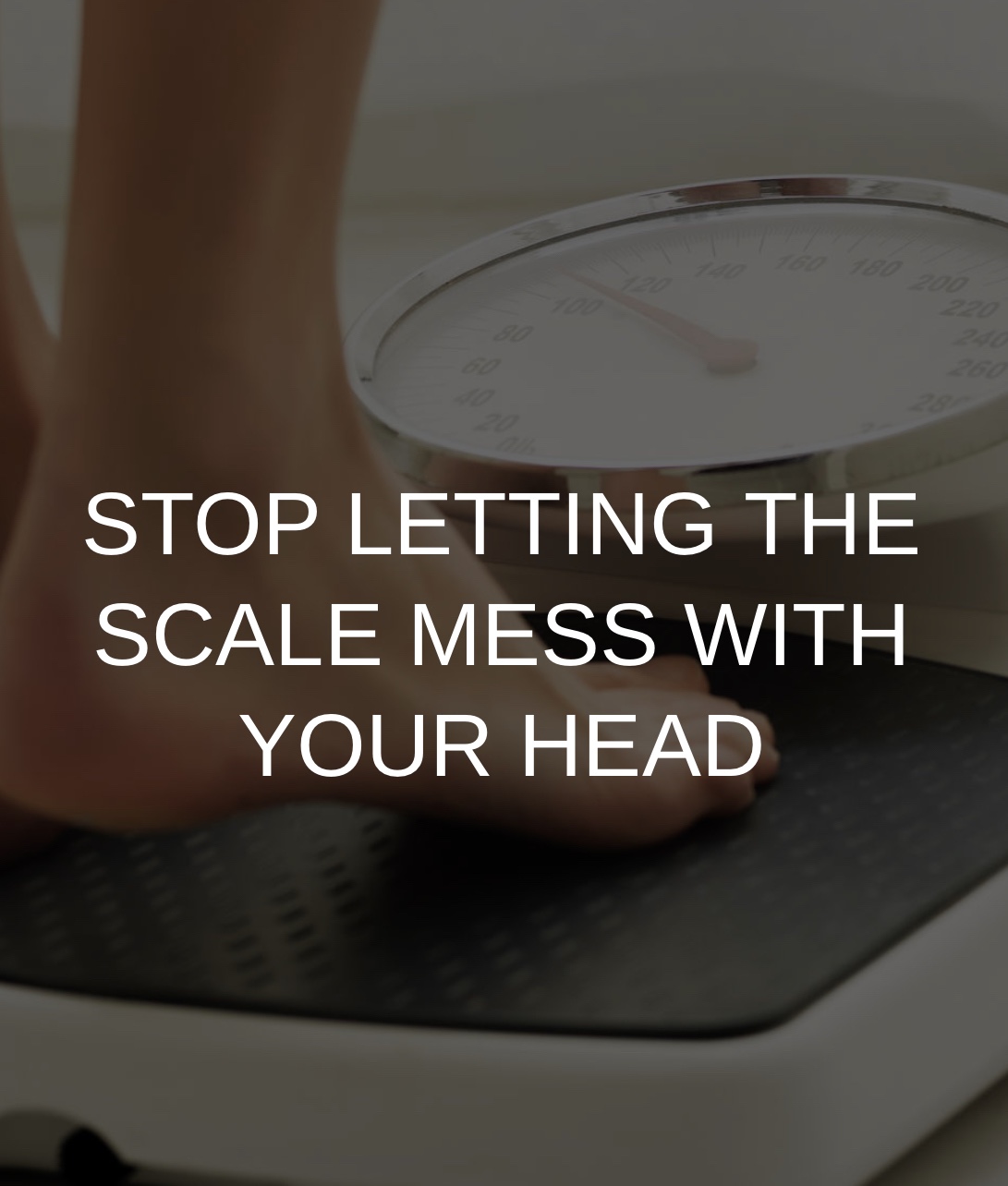I’ve come to find out there are three different types of individuals when it comes to dealing with the scale on a weight loss journey:
- Those who hate the scale and refuse to use it.
- Those who use the scale every couple weeks or months.
- Those who use the scale everyday.
If you are one of the top two, I get it. The scale can be deflating, disheartening, and demotivating. You work your ass off for weeks, even months, and then randomly hop on the scale to see that you’ve barely lost a pound or two, or worse, gained weight! This leads to far too many of us getting mad, falling off the wagon for awhile, or giving up on this whole weight loss thing all together.
If you hate the scale, are too scared to ever use it, or only use it sparingly, I’m going to come at it from a different angle then maybe you’ve ever heard before. This article is going to help you understand the purpose behind the scale and how you can start using it to your advantage to make better, maybe even faster progress.
First off, you need to realize that number you see blinking back at you when you get on the scale, it doesn’t define you. Stop putting so much energy and thought into it. IT’S JUST A NUMBER. I know it’s going to take more than me just saying that to you once through an article, but it’s important you hear it. Stop judging yourself for the number that the scale reads. The only thing you are in control of is making changes from this point forward to turn that number into something you’re happier with. So let’s get started.
WEIGHING YOURSELF ONLY ONCE IN AWHILE ISN’T A GOOD IDEA
Your body is a fluctuating machine. Everyday there are a HUGE number of factors that will determine your weight other than fat loss or fat gain. Here’s a short list:
- liquid intake
- food intake
- carb intake
- sodium intake
- meal timing
- bathroom consistency
- menstrual cycle (females)
- amount of sleep
- stress levels
- recent exercise
- sickness
I could keep going, but I think you get the point. All of these factors play a role in your day to day number in weight and they have absolutely NOTHING to do with fat loss and/or fat gain.
Let’s say you started your diet three weeks ago and have only weighed yourself on day one since you started. You’ve been following your plan consistently without any mess ups and are feeling extra good today so you decide now is a good time to hop on the scale and see how much progress you’ve made. Without even thinking about it you forget you haven’t used the bathroom yet today, you had your last meal extra late last night, and didn’t get as much sleep as usual. You hop on the scale and you’re weight is the exact same as it was when you started. You start second guessing everything you’ve been doing, lose your motivation, and even contemplate quitting.
What you don’t realize is that if you would have waited an extra day to weigh yourself you would have seen your weight 3-5 lbs lower when those factors weren’t playing a role in your current weight any longer. But since you’re so upset by that one weigh in you tell yourself, “I’m not getting back on the scale again, it only messes with me!”
The reason it messes with you is because you aren’t looking at the scale as the tool that it actually is.
HOW TO USE THE SCALE TO BE SUCCESSFUL
The scale should be viewed ONLY as a tool to compare data points. Not random data points of when you feel like seeing your weight, but daily data points so they can be compared in the future. You’re probably thinking, “Wait, you’re saying I should weigh myself everyday?!” That’s exactly what I’m saying. I understand it doesn’t seem like the most fun task in the world, but I promise it will benefit you in the long run. You’ll be able to compare weeks worth of data against previous weeks worth of data to see if you’re actually progressing. Instead of comparing a random day to another random day that leaves you so deflated and has so many random factors at play that have nothing to do with fat loss.
By having data from every day you’re able to see the big picture of your journey. If the average weight of week 5 is the same average as week 1, you’ll know something your doing is hindering your weight loss, but if week 5 has an average a few lbs lighter, you’ll know you are on the right track.
HOW TO VIEW YOUR DAILY WEIGH-IN
Here’s what you need to understand if you decide to commit to this: your weight WILL fluctuate often, even daily. I’ve worked with clients who’s weight can fluctuate up to 5 lbs in a day (even more for some ladies who are on their menstrual cycle). You can’t get into the mindset of comparing day to day weigh-ins as making progress or not making progress. Each day is simply a data point for you to compare in the coming weeks, not days. Simply track your weight in the morning, stick with your protocols your using to lose weight, and assess your progress down the road when you’ve given yourself a long enough time frame to actually make progress. DO NOT start letting each weigh in mess with your head. You’ll have days where the scale is higher and days when it is lower. Neither really means anything unless you are comparing them to previous weeks or months, NOT DAYS.
WHEN & HOW TO ASSESS YOUR PROGRESS WITH THE SCALE
First things first, start by judging your progress off of the way you’re feeling, how your clothes are fitting, and how you look compared in pictures and/or body measurements. The scale doesn’t always tell the whole story. I would suggest comparing weekly averages to one another. As long as your average is down at least 1/2 – 1 lb of weight per week you are on the right track. If you want progress to be faster or aren’t losing at least that amount, look at dropping your daily caloric intake slightly. I’ve written many article on finding your correct amount of calories for weight loss that you can go and read if you don’t know where to begin.
I’ll make it easy by linking a free resource that will help you get started here:
THE MACRO STARTER KIT
The scale may seem scary to you, but by conquering your mind and taking the emotion away from your weight, you’ll be able to use the scale for the great benefit it can be in tracking your progress. I urge you to stop using the scale randomly. You are selling yourself extremely short and leaving your motivation at chance in doing so.
Questions? Leave em below!









